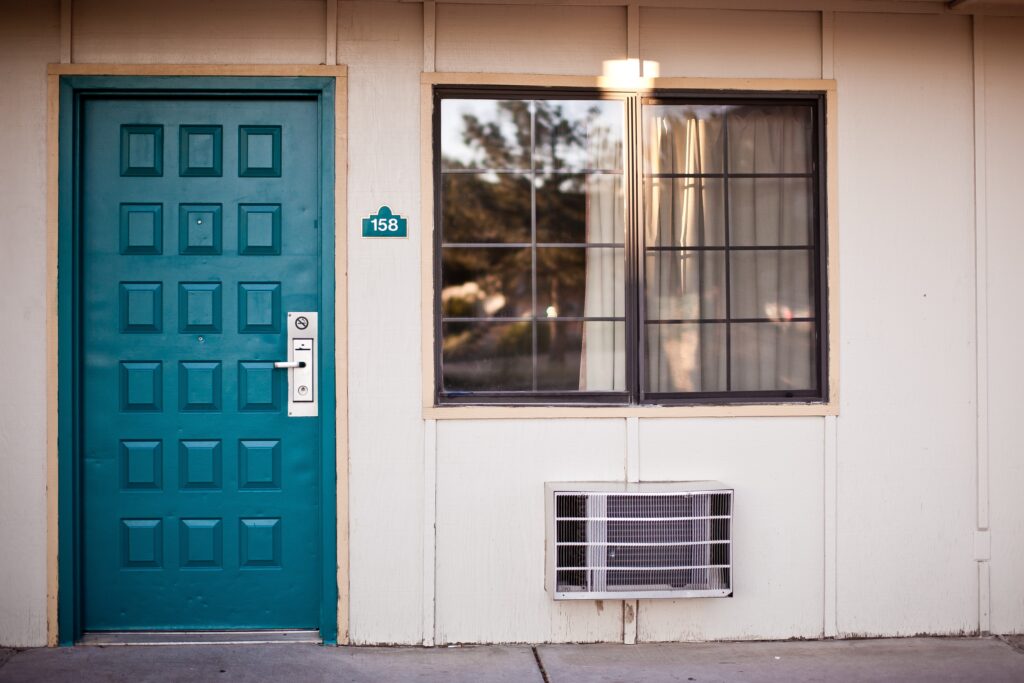By Mike Brewster
It’s hard to imagine that before he founded the Holiday Inn motel chain, travelers had few places to spend a night on the road
In the early 1950s, a new Interstate Highway system, cheap gasoline, big cars, and prohibitively expensive air travel meant that even millionaires packed up the family and took to the road for driving vacations. It was summer, 1951, when Kemmons Wilson, one of Memphis’ most well-known businessmen, left on a two-week trip to Washington, D.C., with his wife and five children.
A highly successful real estate agent and homebuilder, Wilson was famous in Memphis for constructing bigger and better houses than his competitors, but charging similar prices. One of his pet phrases — “The space in the middle of a house doesn’t cost anything” — explained his common-sense approach to both building houses and life in general.
That’s why Wilson was particularly galled at the $2-per-child surcharge that roadside motels commonly attached to his bill on that fateful trip. The room was already rented, Wilson reasoned. Why should it cost more if a few kids are running around the space in the middle? At the end of the vacation, Wilson told his wife he was going to start his own hotel chain.
EVERYBODY STAYS THERE. The result was Holiday Inn motels, the roadside home-away-from home for millions that ushered in the modern hotel era and popularized the roadside perks that Americans have come to love (albeit take for granted): air conditioning in every room, free parking, free ice, in-room phones, rates by the room and not the number of people, and high cleanliness standards.
While the chain has seen its ups and down depending on the fickle taste of the U.S. vacationer and business traveler, more than 1,000 Holiday Inns today dot byways in all 50 states and in more than 50 countries. According to the company, 96% of Americans have stayed in a Holiday Inn at least once.
Wilson was born in Osceola, Ark., in 1913. His father died when Kemmons was still an infant and his mother, Doll Wilson, took a job as a dental assistant in Memphis. Wilson’s future entrepreneurialism was fueled by early necessity. In fact, his most amazing accomplishment may have come when he was 20. As the Great Depression hit, Doll Wilson lost her job, and her son quit school to try selling popcorn and soda.
MUSIC MAN. When that didn’t get him very far, Wilson borrowed $50 from a good friend to buy his own popcorn machine, which he set up in a movie theater lobby. By 1933 — the very nadir of the Depression — Wilson had saved enough ($1,700) from selling popcorn that he purchased a house for Doll and himself to live in.
Jukeboxes were the entrepreneur’s next frontier. He purchased the local Wurlitzer franchise, prospered, and started buying lots and building houses. Upon deciding to build his motels, Wilson filched the “Holiday Inn” moniker from a 1942 Bing Crosby film of the same name. Wilson employed his homebuilding experience to immediate effect. He chose ideal locations for the first four Holiday Inns, all in Memphis.
The first, which opened in 1952 just off a two-lane highway on the outskirts of the town, charged $6 per night. Wilson’s business contacts throughout the state translated into wildfire growth. By 1959 100 were in operation, and at the chain’s peak in 1975 1,700 Holiday Inns were spread around the world.
“I’LL TAKE THE REST.” As the 1970s and 1980s wore on and companies began to value and appeal to the “middle market,” that vast area that most people and companies fall under, Wilson had long figured out that most people wanted simplicity, quality, and low-cost. The Economist quoted him in 2003 as once saying, “You can cater to rich people, and I’ll take the rest. The good Lord made more of them.”
All the while, Wilson started other companies, such as theater and real estate concerns, under the rubric Kemmons Wilson Cos., to sell to this same customer base. Wilson eventually sold the Holiday Inn franchise in 1990. Today, all five of his children participate in Kemmons Wilson Cos., headquartered in Memphis.
Though Wilson never did get that high school degree, he nonetheless gave his most famous public statement when he was invited late in life to speak at a commencement ceremony at the school. “I really don’t know why I’m here,” Wilson said. “I never got a diploma, and I’ve only worked half-days my entire life. I guess that’s my advice to you. Work half-days every day. And it doesn’t matter which half, the first half or the second half.”
Wilson died at his home in Memphis on Feb. 11, 2003. A short anecdote told by a friend at Wilson’s funeral service summed him up best. Wilson, who flew 65 mission as a World War II pilot, was asked by a friend why he gone ahead and volunteered. His response: “I don’t think they can win that war without me.”
